The intersection of arts and activism is a powerful force for social change. Get to know some of the inspiring groups supported by the Fund who are using arts and activism to promote and protect human rights around the world.
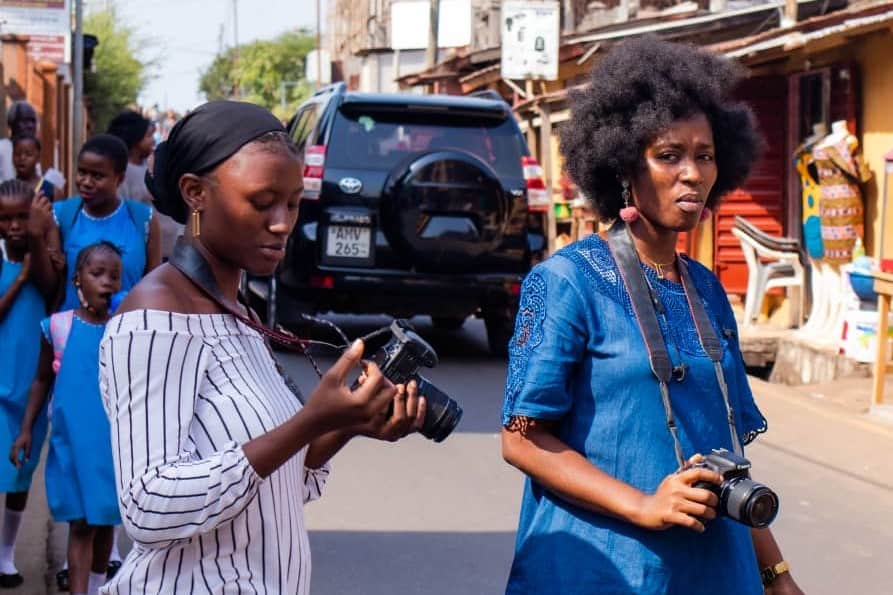
Fatmata Kamara wasn’t always a photographer.
After dropping out of college, Fatmata took a job as a receptionist at a photography studio in Sierra Leone. Occasionally, her boss, a man named Moses, brought Fatmata along with him to shoot on location.
One day, Fatmata recalls, they were photographing a group of women who practice ancient traditional farming. Noticing that the women seemed uncomfortable posing for a man, Fatmata offered to take their photos. Developing her film days later in the dark room, Moses praised her eye and remarked, “As far as I know, there are no female photographers in our community, probably in the whole country!”
[READ: Lively-hoods: A Youth-Led Learning Agenda]
Today, Fatmata is the co-founder of Girls Behind the Lens—a pioneering collective of women photographers who use their media to both make a living and shine a light on the issues facing women and girls in Sierra Leone. They became a Fund for Global Human Rights grantee partner in 2021, when a group of their peers selected them for funding as part of the Fund’s participatory Tar Kura grantmaking initiative.
Fatmata is both an artist and activist—or, some might say, an “artivist.” Throughout history, the intersection of arts and activism has been a powerful force for social change. And today, Fund grantee partners are using everything from theater to creative storytelling to share their messages, uplift marginalized voices, and create real change in their communities.
Get to know some of the inspiring groups supported by the Fund who are using arts and activism to promote and protect human rights around the world:
India
In Karnataka State, LGBTQ+ rights group Payana has been using performance, photography, and art to empower and give visibility to trans individuals since 2009.
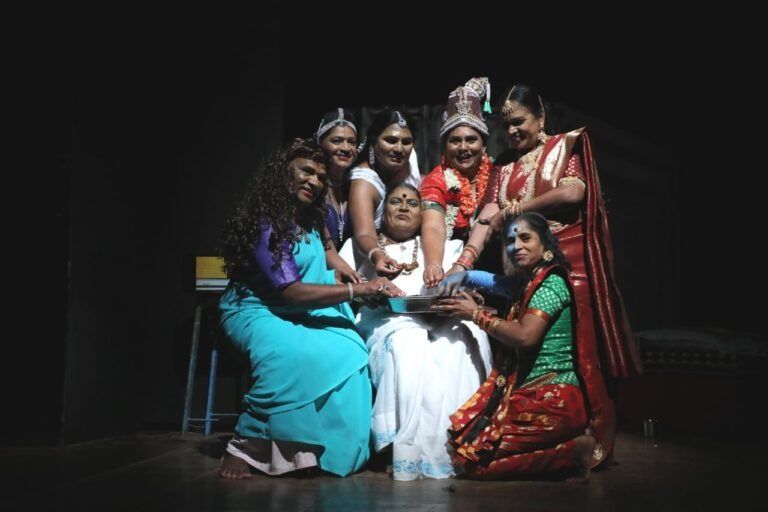
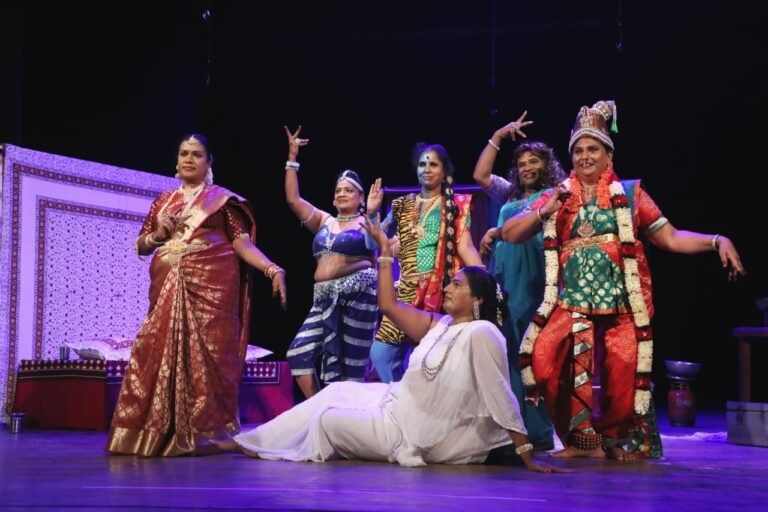
With the support of the Fund, Payana is currently touring a play called “Talka,” which showcases the trans community’s resilience and offers a platform for dialogue on discrimination and the different experiences of younger and older generations of trans people. The play focuses on elders within the community, providing an invaluable platform that this often-overlooked group is using to express their identities, challenge stereotypes, and amplify their experiences and concerns.
Watch a performance of the play (performed in Kannada)
Sierra Leone
Girls Behind the Lens is a women-led, feminist photo agency based in Freetown that trains young women and girls in photography. Not only can they use those skills to generate income, but they can also highlight their experiences of discrimination and sexism.
“By learning photography, we created the space for us to be self-dependent, self-confident, and more aware of the subtle attitudes and behaviors that erode the rights of young girls and women,” says co-founder Fatmata Kamara.
The Fund for Global Human Rights gave the group its initial seed funding, which allowed them to purchase cameras and equipment and start a training program for an initial group of five young women.
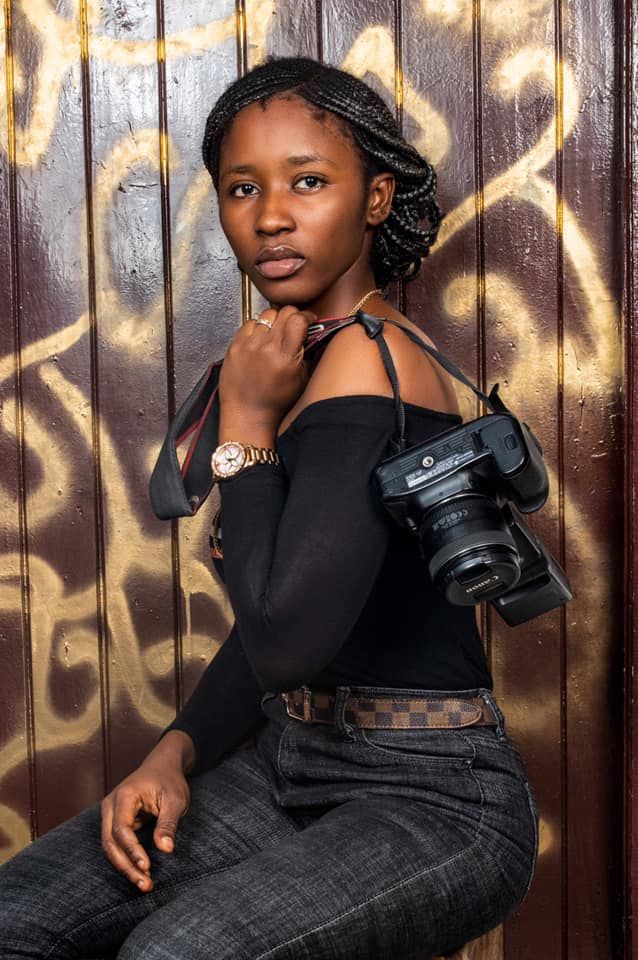
Guatemala
Journalism is fundamental to democracy. It’s also a vital tool for pursuing justice and protecting human rights. Through bold, creative storytelling, journalists can educate people and help build societies where democratic values, human rights, and activists are respected.
In Guatemala, the Fund for Global Human Rights supports two creative agencies who are bringing human rights stories to broader audiences.
Agencia Ocote uses innovative digital media to tell forgotten or suppressed stories from Guatemala’s civil war. Their project Aqui Paso Algo (Something happened here) blends geolocation and soundscapes to create interactive maps, which allow audiences to chart their own path through Guatemalan history and discover the truth about past atrocities.
Learn more about Aqui Paso Algo (in Spanish)
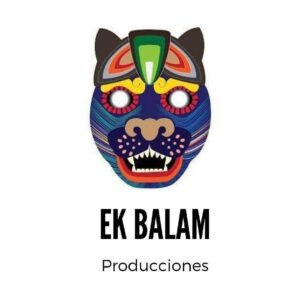 Ek Balam—meaning “black jaguar” in the Yucatec Mayan language—is a Fund-supported agency producing documentary films, many of which center the lived experiences of Guatemala’s Indigenous communities. Their mini-series Guate Se Levanta (Guatemala rises) explores the role that Indigenous peoples played in sparking Guatemala’s 2023 democratic movement.
Ek Balam—meaning “black jaguar” in the Yucatec Mayan language—is a Fund-supported agency producing documentary films, many of which center the lived experiences of Guatemala’s Indigenous communities. Their mini-series Guate Se Levanta (Guatemala rises) explores the role that Indigenous peoples played in sparking Guatemala’s 2023 democratic movement.
Watch Chapter 1 of Guate Se Levanta (in Spanish)
Tunisia
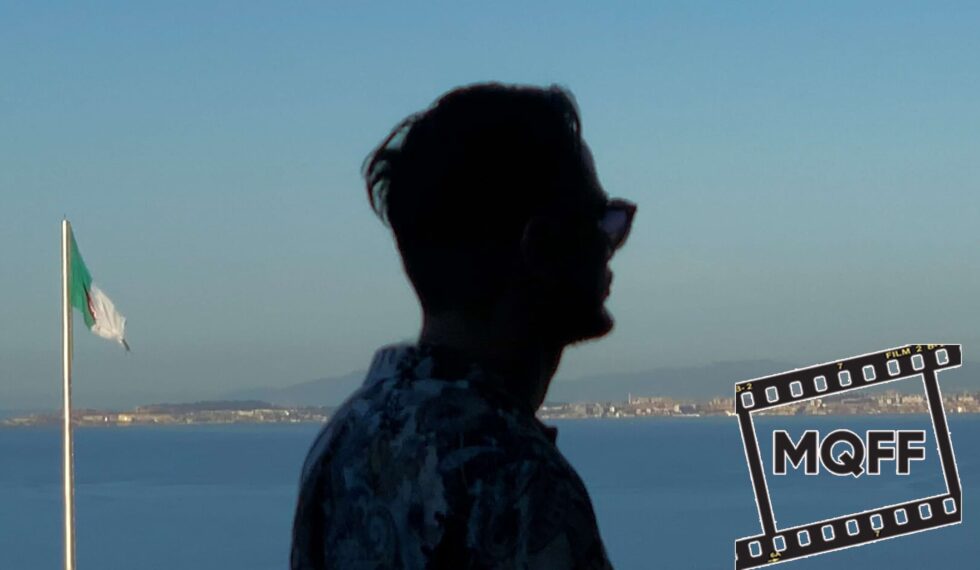
Fund grantee partner Mawjoudin We Exist advocates for LGBTQ+ rights in Tunisia, where same-sex relations are still illegal. Their annual queer film festival is the first of its kind in the country.
This year, the Maghrébin Queer coalition, coordinated by Mawjoudin, premiered Maghreb’s Hope—a film directed by Bassem Ben Brahim and supported by the Fund that explores the lived experiences of LGBTQ+ people across the Maghreb and beyond. Blending live action with animation, the film portrays the struggles and resilience of queer individuals in Algeria, Morocco, Tunisia, and Brazil.
“Maghreb’s Hope is more than just a film,” said director Bassem Ben Brahim. “It represents a collective effort to uplift marginalized voices and foster understanding in a region where these narratives are often silenced.”
Sign up to our newsletter
Add some impact to your inbox.
By submitting this form, you accept that your data will be stored and processed in line with our Privacy Policy.


